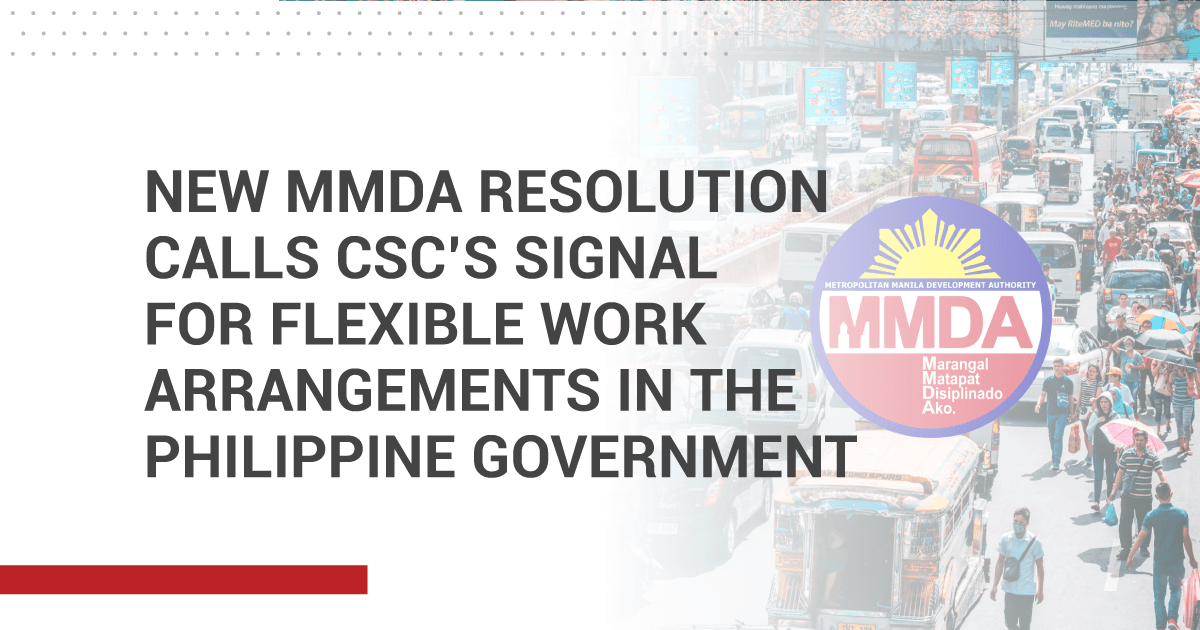
New MMDA Resolution Calls CSC’s Signal for Flexible Work Arrangements in the Philippine Government
Metro Manila Development Authority (MMDA) and Metro Manila Council (MMC) have taken a radical step by creating a flexible working schedule for public servants in Local Government Units (LGUs) across the metro, in solution to never-ending issues of excess traffic in the Philippines. They encourage agencies and government workers nationwide to adopt innovative methods for public service, aligned with the Civil Service Commission’s (CSC) policy on Flexible Work Arrangements (FWAs).
Karlo Nograles, CSC Chairperson, emphasized the significance of the MMDA’s resolution and mentioned the implementation of a definite working schedule from 7AM. to 4PM. for officials and employees in LGUs is rational with the Policy on Flexible Work Arrangements (FWAs) issued by the CSC for agencies and government workers across the country.
The National Capital Region (NCR), recognized as the center of the country’s public service sector, encompasses an increased number of 440,009 government workers which made the urge for dynamic operations.
Nograles stated, “The prevailing traffic conditions in the metro does not only hinder their mobility but also impact their productivity, particularly for those who commute daily. By adopting the FWA, we can enhance their efficiency and safeguard their health, safety, and welfare.”
Under the CSC Resolution No. 2200209, issued on 18 May 2022, which embraced CSC Memorandum Circular (MC) No. 6, s. 2022, these policies aim to regulate FWAs, highlighting workforces’ transforming needs and conditions.
In a February 2024 advisory, including the important role FWAs convey in developing organizational agility and resilience, mandated by CSC policies. It emphasized different forms of FWAs that government agencies may accept to ensure continuous public service delivery.
Amidst these options, the Flexible Work Arrangement provides officials and employees the freedom to work outdoors, including work from home or satellite offices, as long as it has approval from the agency head.
For agencies compelling round-the-clock operations or demanding rigid health protocols, the Work Shifting Model supports flexible hours from 7AM to 7PM., sustaining the mandatory 40-hour workweek.
Compressed Workweek Initiative entails the ideal workweek into fewer days, restoring work-life balance and efficiency. On the other hand, the Skeleton Workforce model includes vital services maintained during demanding periods. Agencies can combine these FWAs as needed, creating solutions to their particular mandates and operational demands.
With the influence of the MMDA’s futuristic resolution and the CSC’s persistent stance on FWAs, a new era of adaptive, efficient, and resilient public service will happen.


